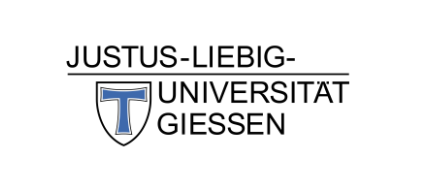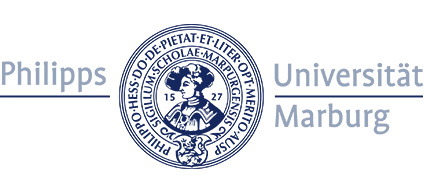13.07.2022 Top-class research award for Prof. Dr. Tobias Erb
Prof. Dr. Tobias Erb, Director and Head of the Department of "Biochemistry and Synthetic Metabolism" at the Max Planck Institute for Terrestrial Microbiology receives the Merck Future Insight Prize, which is endowed with 1 million Euro, for his research that opens the way to a more sustainable fixation of the greenhouse gas CO2.

Max-Planck researcher from Marburg receives Merck Future Insight Prize for his work on synthetic Photosynthesis
The Future Insight Prize was awarded on Wednesday, July 13, 2022 at 5:30 pm at the Curious 2022 science conference in Darmstadt, Germany.
In the future, scientists hope that artificial photosynthesis will find its way into bioreactors in order to use CO2 sustainably as a valuable material or to even extract it from the surrounding atmosphere.
The success story of Tobias Erb's research began with the meticulous selection and optimization of the best biological building blocks for the big challenge, namely, to use sunlight to capture CO2 more efficiently than plants have been doing for millions of years.
Many thousands of laboratory hours later, it was done: the "CETCH cycle" designed that Tobias Erb and his team had assembled in the lab, an artificial metabolic pathway whose enzyme workers come from different organisms, converts the greenhouse gas more efficiently than nature itself. Most importantly, it works both outside the plant and in artificial cells as bioreactors. This opens up the possibility of sustainably capturing CO2 in the future and using it as a valuable material, for example as a base material for the chemical industry. For this research achievement, Tobias Erb has now received the Merck Future Insight Prize, which was established by the Merck company on the occasion of its 350th anniversary in 2019.
"The Future Insight Prize is a great honor for me. It provides me and my team with the opportunity to further develop our vision and create the basis for new applications using the knowledge we are creating in the laboratory," says Tobias Erb. "At the beginning of every application lies a precise understanding. When you take things apart, you learn how they work. But you also learn how they are built. Now to use that knowledge in order to develop new ways of converting CO2, better and more efficient ways, that's exciting. That's what we want to do in our laboratory: to understand something in detail so we can then apply it."
The Future Insight Prize recognizes forward-looking innovations and their ability to find solutions to existing challenges.
“Science and technology hold the keys for society to accelerate its ability to improve the health of humanity and our planet. Tobias Erb has re-engineered photosynthesis to provide humanity with efficient capturing and conversion of carbon dioxide into useful products,” said Belén Garijo, Chair of the Executive Board and CEO of Merck. “He is a perfect recipient of the Future Insight Prize, and we hope this award will further accelerate the commercialization and adoption of his discoveries.”
Each year for the next 35 years, Merck plans to use the research prize to support scientific work that contributes to new breakthrough scientific discoveries or the development of key technologies. The company aims to provide impetus for creative solutions to realize visionary products.
Bettina Stark-Watzinger, German Federal Minister of Education and Research, commented: “With the Future Insight Prize, Merck honors outstanding science in a special way. The prize winners stand for innovative research and successful transfer. With their work, they make important contributions to solving the pressing questions of our time. The prize money could hardly be better invested than in the future research of these bright minds.”
Tobias Erb also expressed his gratitude for the motivation that comes with such a prize. "The prize encourages us to continue on our path and develop a novel photosynthesis. At the same time, of course, the prize gives us the opportunity to hire the best people and invest in the technology we need to achieve this vision," Tobias Erb explains. "What motivates me every day in the lab is the interaction with many different scientists from all over the world. They come here to Marburg to collaborate with us. They come up with new ideas that inspire me; and they will shape the next generation of scientists who will continue to expand our research."
Infobox:
Tobias J. Erb is a German biologist and chemist at the Max Planck Institute for Terrestrial Microbiology in Marburg. His main research interests are microbial biochemistry and synthetic biology, in particular the discovery and design of novel enzymes and metabolic networks and their implementation in natural and synthetic cells. The focus lies on the conversion of carbon dioxide. How do plants, but also bacteria, bind the greenhouse gas and convert it in this process, and how can this knowledge be used to extract CO2 from the atmosphere even more effectively and make it usable for the food chain, energy supply or chemical industry?
Tobias Erb has received several international awards for his work, most recently the Prix Forcheurs Jean-Marie Lehn (2021). Since 2019, Erb has been an elected member of the European Academy of Microbiology (EMA) and since 2021 of the European Molecular Biology Organization (EMBO).
Contact
Dr. Virginia Geisel
Tel.: +49 160 91 38 73 62
Mail: Virginia.geisel@mpi-marburg.mpg.de
Pressereferentin
Max-Planck-Institut für terrestrische Mikrobiologie


